Tag Archive for: constitution

MBTAAnalysis: A look inside the MBTA
0 Comments
/
The MBTA shuttles over a million passengers a day around Greater…
 https://pioneerinstitute.org/wp-content/uploads/CloseupClock-1.jpg
739
1244
Mary Connaughton
https://pioneerinstitute.org/wp-content/uploads/logo_440x96.png
Mary Connaughton2017-02-20 12:34:192017-02-21 09:47:58The Clock is Ticking…….
https://pioneerinstitute.org/wp-content/uploads/CloseupClock-1.jpg
739
1244
Mary Connaughton
https://pioneerinstitute.org/wp-content/uploads/logo_440x96.png
Mary Connaughton2017-02-20 12:34:192017-02-21 09:47:58The Clock is Ticking…….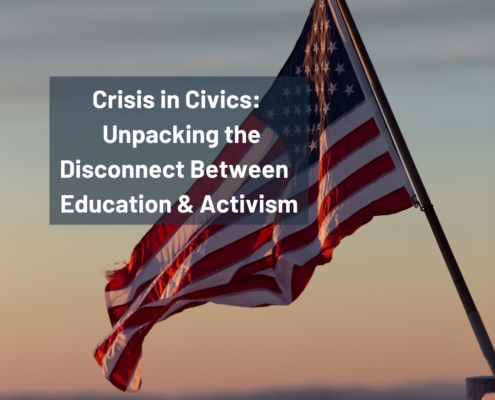
The Disconnect Between Education and Activism
I’m sympathetic when I hear individuals lament cancel culture, radicalized student bodies, and anti-free speech climates in our institutions of higher learning. In many ways, it's right to do so. But in our defense, I might suggest that our lack of aptitude is the result of increasingly substandard history and civics education.

Prof. Jeff Broadwater on George Mason, Federalism, & the Bill of Rights
Prof. Broadwater delves into Mason's views on constitutionalism, federalism, leadership among Anti-Federalists, and concerns regarding emerging commercial interests. He emphasizes Mason's belief in civic virtue as the bedrock of American self-governance and even provides a reading from his biography on George Mason.

Massachusetts Residents Score a ‘D’ in Poll Based on U.S. Citizenship Test
When asked a series of questions about how the federal government works that are based on the U.S. citizenship test, Massachusetts residents answered on average 63 percent of them correctly, earning a collective grade of “D” in a poll commissioned by Pioneer Institute and conducted by Emerson College Polling. The result is just over the 60 percent score required to pass the actual citizenship test.
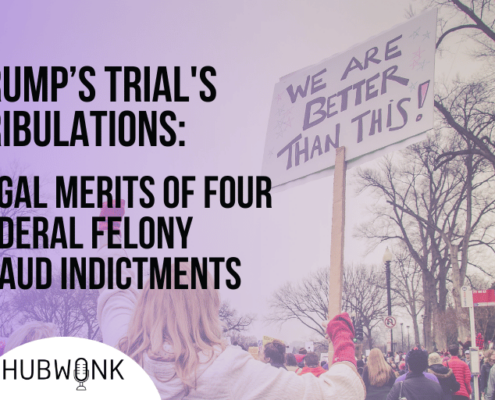
Trump’s Trial’s Tribulations: Legal Merits of Four Federal Felony Fraud Indictments
Joe Selvaggi talks with legal scholar and George Mason University professor Ilya Somin about the legal merits of the federal indictments against former President Donald Trump and what is likely to come next in the legal proceedings against him and other defendants in the cases involving the aftermath of the 2020 presidential election.

UConn’s Prof. Manisha Sinha on The Slave’s Cause: A History of Abolition
This week on The Learning Curve, UConn Professor Manisha Sinha discusses the influential figures and seminal events that created the abolitionist movement. She describes the legacy of the transatlantic slave trade, Harriet Tubman and the Underground Railroad, the passage of the Thirteenth Amendment, and other key moments in the fight to end slavery.

Becket Fund’s Eric Rassbach on Religious Liberty & American Schooling
Eric Rassbach of the Becket Fund for Religious Liberty discusses school choice and religious freedom, competing legal philosophies and views of the U.S. Constitution, and why issues pertaining to religion and schools remain so divisive at the K-12 level.

Columbia Law’s Philip Hamburger on Church, State, & School Choice
This week on The Learning Curve, noted constitutional law professor Philip Hamburger of Columbia Law School discusses the legal basis for private and religious school choice, and how American constitutionalism supports parental choice in education.
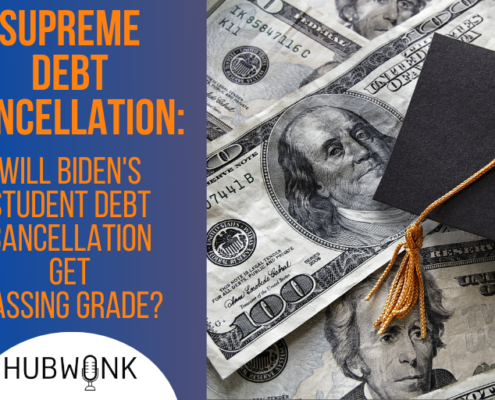
Supreme Debt Consideration: Will Biden’s Student Debt Cancellation Get Passing Grade?
Joe Selvaggi talks with constitutional scholar Ilya Somin about the merits and likely success of the two Supreme Court cases Nebraska v. Biden and Department of Education v. Brown, which challenge the President’s constitutional right to cancel more than $400 billion in student debt.
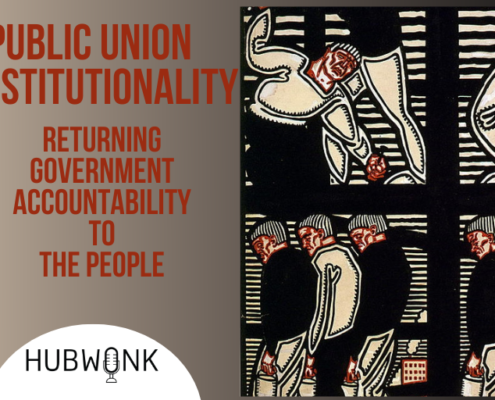
Public Union Constitutionality: Returning Government Accountability to the People
Joe Selvaggi talks with Philip K. Howard about the legal theories in his newly released book, Not Accountable: Rethinking the Constitutionality of Public Employee Unions, which questions whether the structure of public employees unions frustrates the will of the people, and abrogates the responsibility of elected officials to an unelected and unaccountable privileged class.

Stanford’s Pulitzer-Winning Prof. Jack Rakove on James Madison, The Federalist Papers, & U.S. Constitutionalism
This week on “The Learning Curve," Cara and Gerard talk with Dr. Jack Rakove, Coe Professor of History and American Studies and Professor of Political Science Emeritus at Stanford University, and the Pulitzer Prize-winning author of Original Meanings: Politics and Ideas in the Making of the Constitution. Professor Rakove reviews the biography of James Madison, often called the "Father of the Constitution," and the influence of classical and Enlightenment learning on his farsighted political thought and leadership.

NYU Law Prof. Richard Epstein on the Founders’ Constitution & Federalism
This week on “The Learning Curve," co-hosts Gerard Robinson and Cara Candal talk with Richard Epstein, the inaugural Laurence A. Tisch Professor of Law at NYU School of Law, and author of The Classical Liberal Constitution: The Uncertain Quest for Limited Government. He describes the influence of 17th and 18th-century English ideas on our Founding Fathers’ views of ordered liberty and self-government.
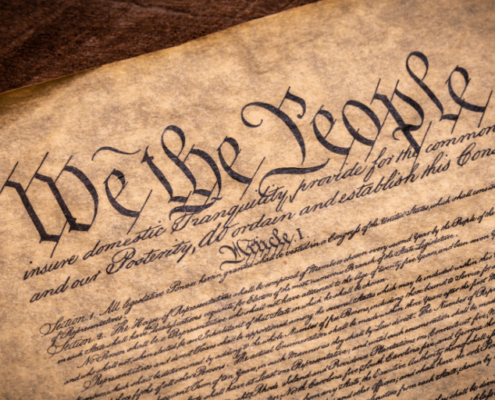
Easthampton High Scores A National Educational Victory During The COVID-19 Pandemic
This spring, Massachusetts’ Easthampton High School was crowned national champion in the “We the People: The Citizen and the Constitution” contest. The competition brings together about 1,200 students from across the country to answer civics questions based on America’s Founding Documents including the U.S. Constitution; The Federalist Papers; and U.S. Supreme Court decisions.
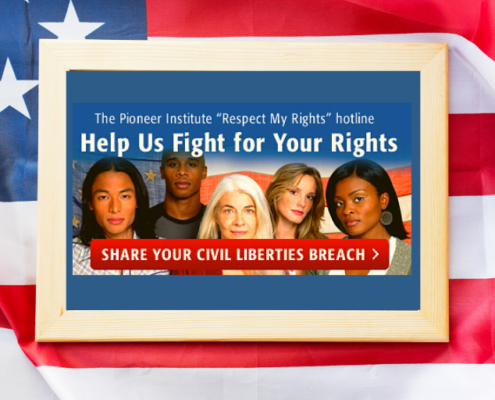
Pioneer Institute Looks Ahead to the Protection of Civil Liberties
Challenges to Americans’ civil liberties have increased in recent years. History teaches us that during national emergencies governments are even more likely to overstep and violate constitutionally guaranteed freedoms. To address this concern, Pioneer Institute has created “Respect My Rights,” a web-based hotline to which citizens can submit complaints and descriptions of violations they have experienced.
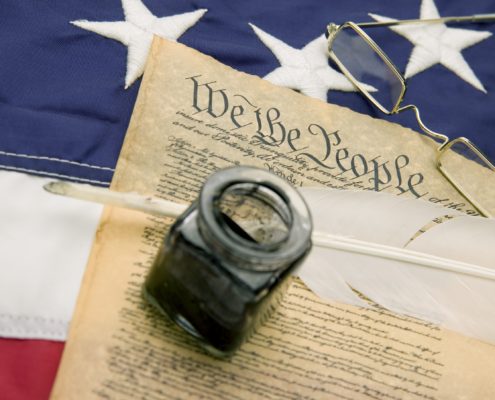
Op-ed: It’s Time to Strengthen—Not Reduce!—History in Our Classrooms
By Tom Birmingham
This op-ed appeared in the print edition…

“The Upside-Down Constitution” Pioneer Members’ Breakfast feat. Michael Greve, AEI Scholar
Pioneer Institute and The Federalist Society co-sponsored…
